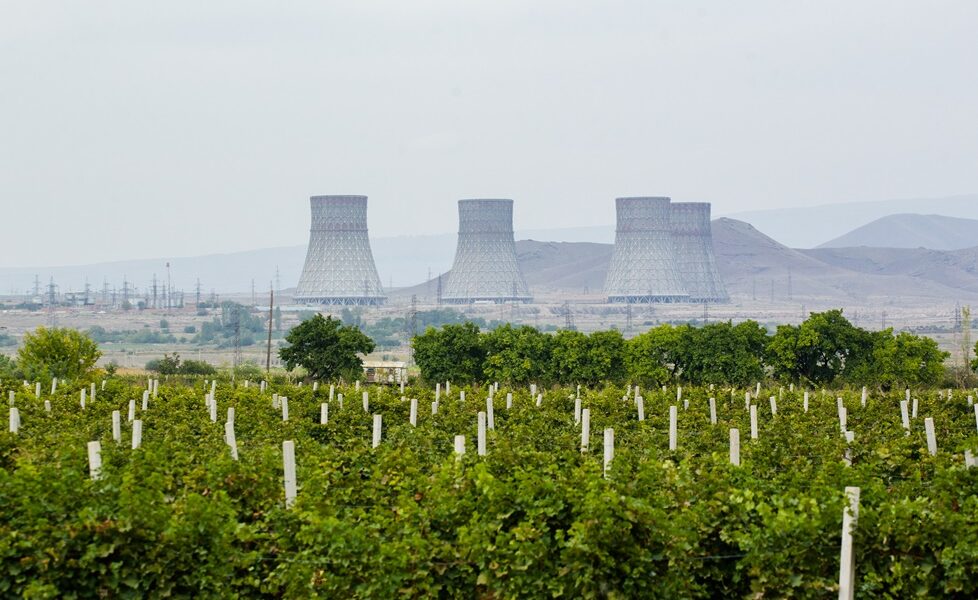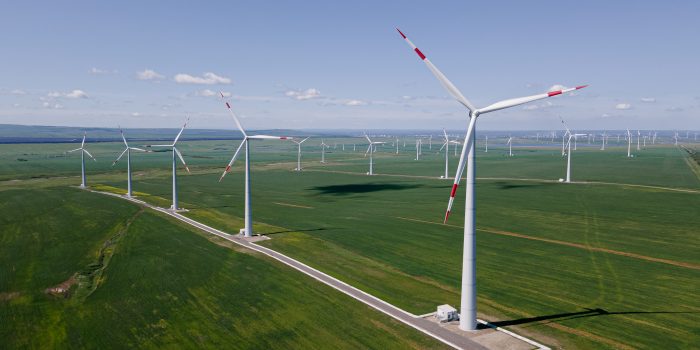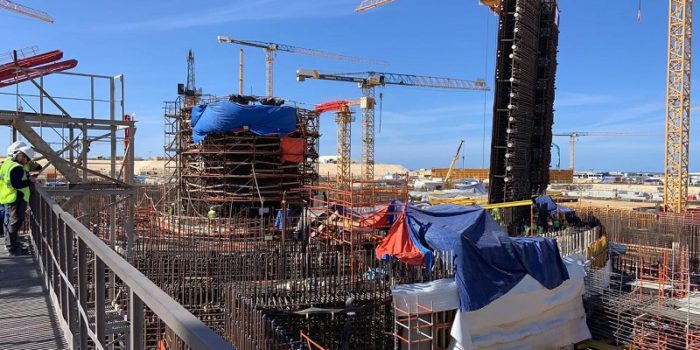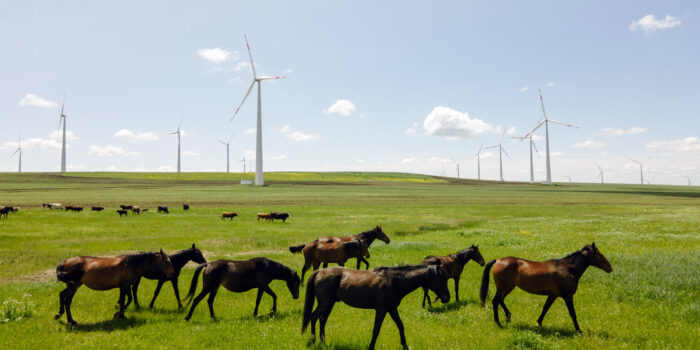The activity of Rosatom in the Republic of Belarus is managed by the country office “Rusatom Bel” LLC. The office was opened in Minsk in 2022.
Belarus
The construction of the Belarusian NPP has become the most high-tech and large-scale project of cooperation between the Rosatom State Corporation and the Republic of Belarus.
Belarusian NPP with two reactors with a total capacity of 2400 MW is located in Ostrovets (Republic of Belarus). The “heart” of the NPP power units are Rosatom’s flagship VVER-1200 reactors, which have already proven their efficiency and reliability in the operation of reference power units in Russia.
Belarusian NPP is the first completed foreign project of the Rosatom State Corporation with generation III+ VVER reactors.
The Russian project of the Belarusian NPP has a number of advantages that significantly enhance its economic characteristics and safety. Its main feature is a unique combination of active and passive safety systems that ensure maximum resistance of the nuclear power plant to external and internal influences. Each power unit is equipped with a core catcher – a solution for localizing the melt of the core of a nuclear reactor, as well as other passive safety systems that can operate in a situation of complete lack of power supply without the participation of operators. In addition, the reactor plant capacity has been increased by 20%, the design service life of the main equipment has been increased to 60 years with the possibility of extending operation for another 20 years.
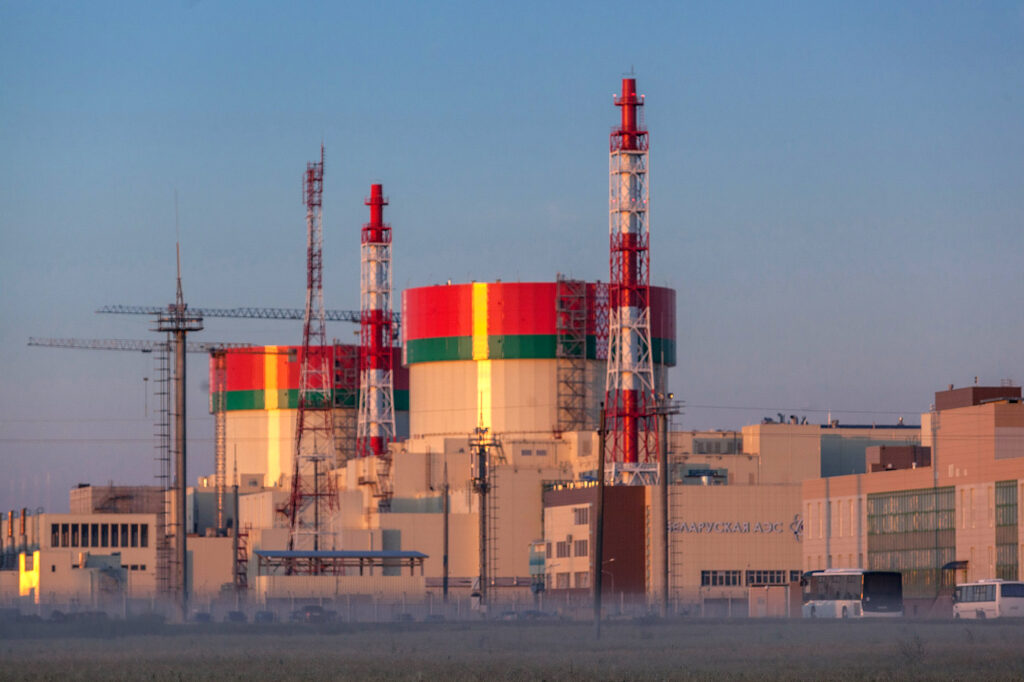
Commercial operation of power unit 1 of the Belarusian NPP started in June 2021. On November 1, 2023 the acceptance committee signed the acceptance certificate for operation of the start-up complex of power unit 2 of the Belarusian NPP.
The commissioning of two power units of the Belarusian NPP made it possible to significantly enhance the economic and energy security of the country and make it one of the world leaders in terms of the share of nuclear generation in the overall energy balance. According to experts, the nuclear power plant will provide up to 40% of the country’s electricity needs.

The Comprehensive Program of Bilateral Cooperation in the field of nuclear non-energy and non-nuclear projects developed by the State Corporation invites the Belarusian side to carry out consistent work in such areas as the development of nuclear medicine, ecology, digitalization, energy storage technologies, and electric transport.
The investment project of the Center for Public Access Additive Manufacturing Technologies in the Republic of Belarus is being developed as part of the implementation of the cooperation Roadmap between Belarus and the State Corporation signed in 2023.
One of the key areas of cooperation between the countries is nuclear medicine. In December 2023, the Tianox medical system received its first foreign certificate in the Republic of Belarus. Rosatom also plans to supply the Brahium high-dose brachytherapy complex to the Republic of Belarus for the treatment of cancer patients.
Armenia
Nuclear power is one of the key sources of energy generation in Armenia, and it plays a crucial role in the national energy supply. The share of Armenian NPP in the total electricity generation in the Republic is about 30%.
In 2021, the project for modernization and extension of the plant’s operating life until 2026 was completed. On December 15, 2023, Rusatom Service and Armenian NPP signed an agreement to extend the operation life of the second power unit of the plant again until 2036.
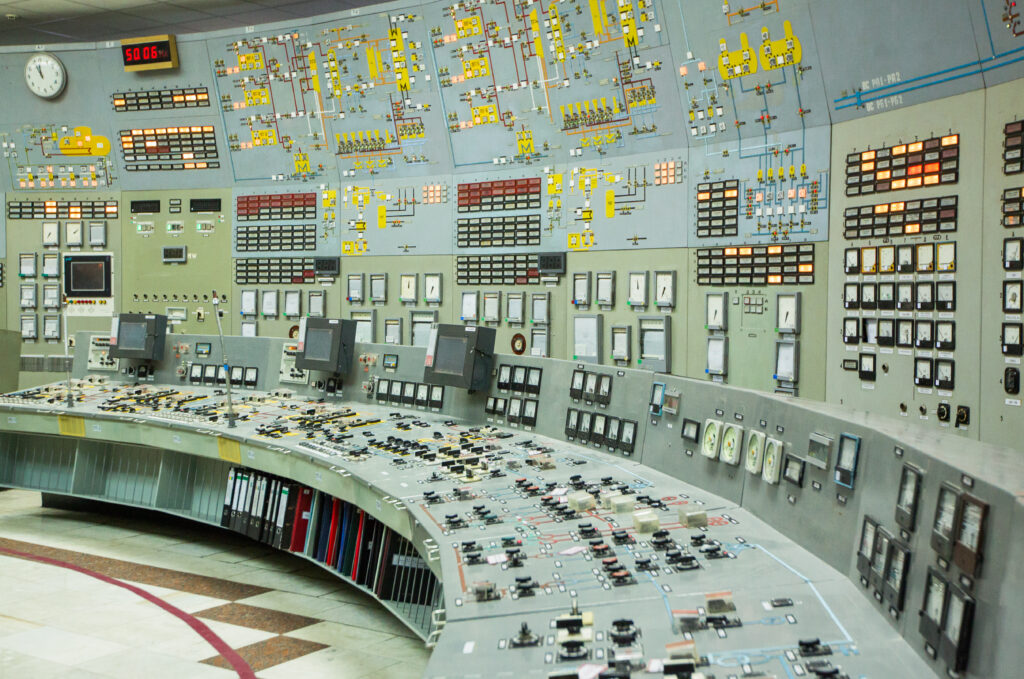
In early 2021, the Armenian government approved a strategic program for the development of the country’s energy sector until 2040, with the construction of a new NPP selected as a priority. On February 21, 2023, Russia presented to Armenia a preliminary feasibility study of the project for the construction of the 1st and 2nd high-capacity power units based on VVER technology at the site of the operating Armenian NPP in Metsamor. Rosatom’s solutions for medium and small power units were also presented during the working meetings.

In Armenia, an important project is the elimination of chemical waste at the Nairit enterprise. During the Soviet era, there was a rubber production plant there; in the 1990s, it ceased operations, but harmful waste was not utilized. Rosatom was approached by colleagues from Armenia with a proposal to carry out reclamation. A team of Rosatom specialists assessed the necessary work at the site and presented an extended analytical report. A decision on further steps is expected from the Armenian partners.

